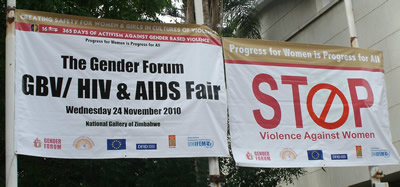Innovative vendors in Zimbabwe
Monday, November 29th, 2010 by Lenard KamwendoThe vendor wrapping sheet is distributed monthly by Kubatana in order to promote people who are in the fruit and vegetable vending business and also to promote a culture of reading and information sharing. With a high rate of unemployment especially in Harare some people have turned to fruit and vegetable vending as a means of self-sustenance. A few years ago vending was associated with mostly women because men preferred to work in industry but with the economic crunch that Zimbabwe has been experiencing, men are now also vending.
When I was distributing the vendor wrapper in Greencroft recently, I was made to realize that you have to be innovative and crafty if you want to survive in the vending business in Zimbabwe. Since vegetable vendors trade in small currency and coins, trading has not been easy due to shortage of coins for change. In order to avert this problem vendors in Greencroft have become innovative by introducing a new system to make trading easy. With stiff competition from OK and Spar supermarkets, vendors at a vegetable market in Greencroft have decided to claim a share of the customers through innovative means. Just like any shop in Zimbabwe, supermarkets in Greencroft issue credit notes as change to customers when they run out of coins. These credit notes are then used to buy any product from vegetable vendors trading at a market in Greencroft. When I talked to one of the vendors, she said they started accepting credit notes brought by customers because they have been having problems of coins to give as change and also it’s a way of encouraging customers to buy from them. She went on to explain how the system works, highlighting that when they have collected a certain number of credit notes the vendors then go to the supermarkets where the credit notes were issued from and buy groceries or redeem them and get cash. The vendors said this system only works if the credit notes are from OK or Spar supermarkets in Greencroft.
Most vendors have been complaining about the shortage of coins and some have resorted to selling their products in bulk and round off the amounts to fifty cents or one dollar, popularly known as “dollar for two” or “dollar for ten”.










